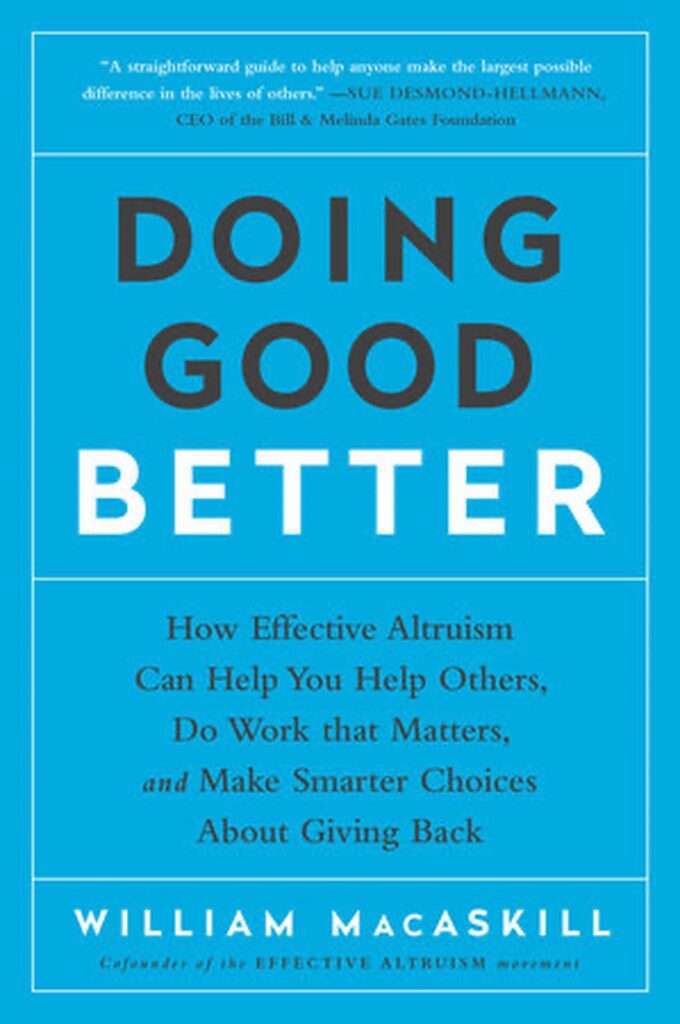Sharing my learnings from the book, Doing Good Better by William MacAskill
Doing Good Better by William MacAskill
While a researcher at Oxford, William MacAskill decided to devote his study to a simple question: How can we do good better? MacAskill realized that, while most of us want to make a difference, we often decide how to do so based on assumptions and emotions rather than facts. As a result, our good intentions often lead to ineffective, sometimes downright harmful, outcomes.

- a lot of us donate to charity but are our donations effective? We hardly know as we don’t follow what happens after we’ve handed over the cash
- When giving to charity, you should give where your expect your impact will be greatest
- given the law of diminishing returns (the more of something you add, the less of a difference each new addition makes), don’t give to causes that already receive a lot
- when assessing how much of a contribution you’re actually making, you have to think about “what would have happened otherwise” by using a scientific practice called “assessing counter factual”
- if you want to make the biggest impact, you need to develop the skills to do so. Ask yourself: could the work I’m doing be done better by someone else?
- think how your chosen career will have the biggest impact on the world?
- earning to give
- think ‘personal fit’ than ‘following your passion’
- it’s not how the money is allocated that matters. It’s what the charity actually does that determines whether it deserves our money
- you should always be aware that the difference you think you’ll be making with charity might not end up being reflected in reality
- to make the most of our charitable donations, you have to think rationally and critically – not only about whom we give to and how we give, but also how that money will be used


Leave a Reply